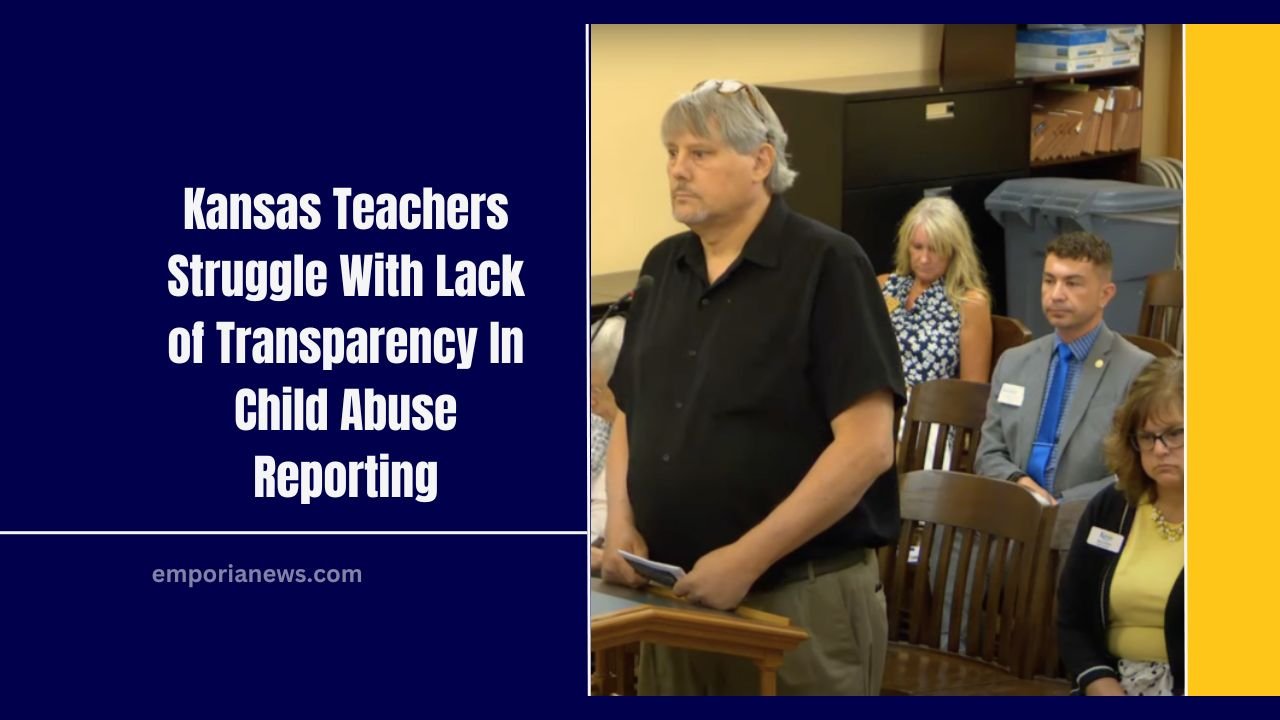TOPEKA, KS — Educators across Kansas are raising red flags about the lack of transparency and feedback from the state after they report suspected child abuse or neglect.
Despite being mandatory reporters, many teachers feel unsupported and uninformed once they’ve made a report—leaving them uncertain about whether they’ve helped the child or not.
The Role of Mandatory Reporters
Under Kansas law, professionals like educators, counselors, health workers, and law enforcement officers are obligated to report any suspicion of child abuse or neglect.
These individuals are known as mandatory reporters. In 2024 alone, more than 71,000 reports were filed with the Kansas Protection Report Center, and nearly 30% came from educators.
Marcus Stratton, a school counselor at Pauline South Intermediate School in Wakarusa, testified to the Joint Committee on Child Welfare System Oversight on the challenges educators face.
While fulfilling his legal duty, he said the lack of follow-up leaves him in an emotional and professional limbo.
“Once we make the report, we may be meeting our legal obligations to do that, but we still have the relationship with the student that we have to maintain,” Stratton shared with lawmakers.
Data Snapshot: Child Abuse Reports in Kansas (2024)
| Category | Value |
|---|---|
| Total reports to KPRC | 71,000+ |
| Percentage assigned for review | ~50% |
| Reports made by educators | ~30% |
| Reports leading to court testimony (Stratton’s experience) | 0% |
Lack of Feedback Creates Uncertainty
Stratton highlighted the issue of not receiving outcomes or status updates after filing a report. He is often left with no clarity other than whether the case was assigned to an investigator.
This lack of communication can hinder further emotional and academic support for the child in question.
Teachers are not allowed to conduct their own investigations, nor are they told what steps the Department for Children and Families (DCF) takes afterward.
While confidentiality is essential, the lack of even basic feedback fosters mistrust and confusion in the system.
Educators Call for Training and Clarity
Stratton believes the process must be strengthened through increased training and transparency. He recommended:
- Detailed training for educators on how DCF investigations are conducted
- Clarification of the qualifications and training of investigators
- Communication strategies that balance confidentiality with practical support
Senator Beverly Gossage, chair of the oversight committee and a former teacher, expressed support for Stratton’s points. She recounted an experience where she reported a student with visible injuries, emphasizing how emotionally difficult and professionally delicate these situations can be.
Voices From Across the State Line
Educators like Monique Young, who has taught in both Missouri and Kansas, highlighted differences in support structures.
In Missouri, regular training is provided, but she noted the absence of central systems within schools to support both students and mandatory reporters equally.
DCF Responds: Open to Dialogue
Tanya Keys, Deputy Secretary at the Kansas DCF, acknowledged the confidentiality challenges but showed willingness to improve collaboration.
She hinted at potential changes that could help educators better understand the system they are working within.
Before concluding Monday’s committee meeting, Gossage requested that Keys and Stratton meet again to discuss improvements.
Their discussion aims to create standardized procedures that can guide all mandatory reporters in Kansas more effectively.
Kansas educators are essential to protecting vulnerable children but are too often left without clarity after reporting suspected abuse.
With over 71,000 reports annually, improving feedback, training, and inter-agency communication is urgent. Policymakers and educators must work together to ensure mandatory reporting is both effective and supportive for all involved.




